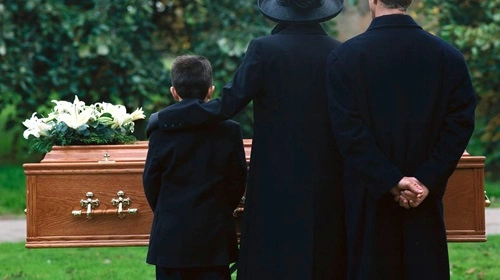Yes, in most cases, it is illegal to bury someone in your yard unless specific regulations and legal procedures are followed. Laws surrounding burial vary by state and local jurisdictions, but the process typically requires permits, adherence to zoning laws, and compliance with public health and environmental standards. While home burials may be legal in some states, they are heavily regulated and often require substantial planning.
Understanding the Legalities of Home Burial
1. State and Local Regulations
- Each state has laws governing the disposition of human remains, including requirements for death certificates, permits, and burial site regulations.
- Local zoning laws often prohibit home burials in residential areas due to public health concerns, environmental factors, and land use restrictions.
2. Permits and Documentation
- To legally bury someone in your yard, you may need:
- A burial permit issued by the local health department.
- A death certificate issued by the state.
- Approval from local zoning or planning boards to ensure compliance with land use regulations.
3. Cemetery Designation
- Some states require private burial plots to be officially designated as family cemeteries. This process may involve filing paperwork with the local government and adhering to specific guidelines, such as plot size and location.
4. Environmental and Public Health Considerations
- Regulations often address the potential impact of burials on groundwater and soil contamination. Proper depth requirements and distance from water sources are commonly mandated.
States That Permit Home Burial
1. General Rules for Permissive States
- States like Texas, Tennessee, and Alabama allow home burials but require compliance with specific conditions. These may include notification of local authorities, filing for permits, and adhering to zoning laws.
2. Limitations
- Even in states where home burial is legal, it may not be permitted in urban or suburban areas due to zoning restrictions.
- Rural areas with fewer zoning regulations are more likely to allow private burials.
When Home Burials Are Not Allowed
1. Prohibited by Local Zoning Laws
- Many municipalities and counties explicitly prohibit home burials in residential neighborhoods to prevent potential disputes and environmental risks.
2. Failure to Obtain Permits
- Conducting a burial without the necessary permits or notifying authorities is illegal and may result in fines, penalties, or exhumation orders.
3. Improper Handling of Remains
- Improper burial practices, such as insufficient depth or failure to use a proper casket or burial container, may violate health and safety regulations.
Alternatives to Home Burial
1. Green Burial Sites
- Eco-friendly burial sites provide a natural alternative to traditional cemeteries, allowing for biodegradable caskets or shrouds. These are often more accessible than establishing a family cemetery.
2. Private Cemeteries
- Families can purchase plots in private or family-designated cemeteries, which provide more control over burial practices while adhering to state laws.
3. Cremation and Ash Scattering
- For those seeking a more personal option, cremation followed by scattering or keeping ashes on private property is typically less regulated than home burial.
Consequences of Illegal Home Burial
1. Fines and Penalties
Violating burial laws can result in significant fines and legal action from local authorities.
2. Exhumation Orders
In cases of non-compliance, authorities may order the exhumation and relocation of the body, creating additional emotional and financial burdens for the family.
3. Civil Liability
Neighbors or community members may file lawsuits for nuisance or property devaluation related to an improper burial.
Steps to Legally Bury Someone in Your Yard
1. Research Local Laws: Contact your city or county zoning office to understand local regulations and restrictions.
2. Obtain Necessary Permits: Secure a burial permit and ensure all required documentation, such as the death certificate, is in order.
3. Designate the Land as a Cemetery: File the necessary paperwork to legally designate your property as a burial site.
4. Hire Professionals: Consult with a funeral director or legal expert familiar with local burial laws to ensure compliance.
Conclusion
While home burials are permitted in some states, they are subject to strict regulations, including zoning laws, public health requirements, and permit processes. Burying someone in your yard without adhering to these rules is illegal and can lead to fines, exhumation orders, and legal disputes. Families considering this option should thoroughly research local laws and consult professionals to ensure compliance.
Related FAQs
Q1. Can I bury a family member on private property without permission?
Ans: No, most states require permits and compliance with local zoning laws before any burial on private property.
Q2. How deep does a grave need to be for a home burial?
Ans: Regulations typically require a grave depth of at least 3–4 feet to prevent disturbances and environmental contamination.
Q3. Are home burials environmentally safe?
Ans: Properly conducted home burials can be environmentally safe, but states often have specific guidelines to mitigate risks, such as distance from water sources.
Q4. Can I turn my property into a family cemetery?
Ans: Yes, in some states, but you must follow the legal process, including zoning approval and cemetery designation.
Q5. Is it legal to bury pets in my yard?
Ans: Many jurisdictions allow pet burials on private property, though local rules may apply.

